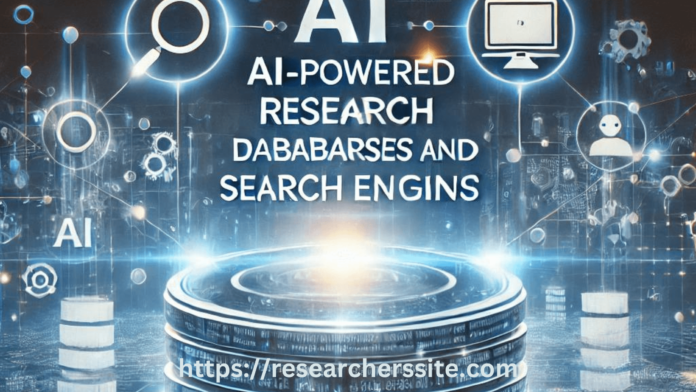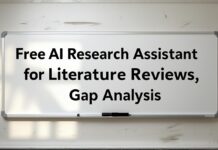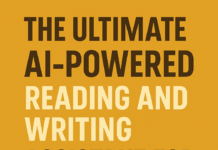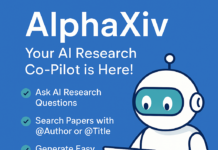Keeping up with the latest studies and locating useful resources is a tough task in academic research. AI-powered research databases and search engines are transforming how researchers access and utilize information. This blog post explores the benefits, top tools, and tips for effectively using AI in academic research.
What Are AI-Powered Research Databases and Search Engines?
AI-powered research databases and search engines utilize Artificial Intelligence (AI) to improve the speed and precision of academic literature searches. These advanced tools employ machine learning algorithms, natural language processing, and data mining techniques to deliver researchers accurate, high-quality information that meets their specific requirements.
Benefits of Using AI-Powered Research Tools
- Improved Search Accuracy: AI algorithms produce more accurate search results, by understanding the context and meaning of queries,.
- Time Efficiency: Academic researchers save time and effort with AI tools that can quickly filter through massive datasets to find relevant information.
- Personalized Recommendations: AI can analyze a user’s search history and preferences to provide customized recommendations for reliable, relevant literature and resources.
- Enhanced Data Analysis: Some AI tools offer features for data analysis and lets you draw insights and identify trends within their field of research.
In my prior blog post on Finding Relevant Papers Fast with AI-Powered Academic Search Engines , I already provided an elaborate explanation and a step-by-step guide on utilizing various AI-powered academic search engines tools for academic research.
Top AI-Powered Research Databases and Search Engines
Semantic Scholar
Semantic Scholar is an AI-powered research tool developed by the Allen Institute for AI. It uses machine learning and NLP to deliver highly relevant search results, Besides, it offers features like citation graph analysis and paper recommendations.
Scite
Scite is an innovative AI tool that goes beyond traditional citation counting. It uses deep learning to analyze the context of citations. Moreover, it allows you to understand how a research paper has been cited like supporting, contrasting, or mentioning and its impact on the field.
Dimensions
Dimensions is an AI-powered research database that integrates publications, grants, patents, clinical trials, and policy documents. Its AI-driven analytics provide insights into research trends, collaboration networks, and funding landscapes.
Iris.ai
Iris.ai uses AI to help researchers discover and review scientific papers. It can understand the context of a research topic and find relevant papers, making literature review more efficient. I covered Iris.ai tool in detail with a step-by-step guide for academic research in my previous blog post.
Research Rabbit
Research Rabbit is an AI-powered tool that aids in finding and organizing academic literature. It provides recommendations based on the user’s research interests and helps in tracking new publications and trends.
Connected Papers
Connected Papers is an AI-powered tool that creates a visual graph of related papers based on a given research paper. This helps researchers explore connections between different works and find relevant literature efficiently.
In my earlier blog post, I gave an in-depth explanation and a step-by-step guide on using connected paper tools for academic research.
Tips for Effectively Using AI-Powered Research Tools
Formulate Clear and Specific Queries
To get the most out of AI-powered search engines, formulate precise and specific queries. You can use relevant keywords and phrases to narrow down the search results to the most pertinent literature.
Utilize Advanced Search Features
You can use advanced search options like filters, Boolean operators, and citation tracking to refine your search and find the most relevant studies, especially for academic researchers like you
Stay Organized with Research Management Tools
Integrate AI-powered search engines with research management tools like Zotero, Mendeley, or EndNote. These tools can help you organize your references, annotate articles, and collaborate with other researchers.
Regularly Update Your Search
AI-powered search tools continuously update their databases with new research. Regularly updating your search can help you stay informed about the latest developments in your field. In order to get latest news about your field you can try R Discovery.
Conclusion
AI-powered research databases and search engines are revolutionizing the way researchers access and utilize academic literature. By leveraging AI’s capabilities, these tools offer improved search accuracy, time efficiency, personalized recommendations, and enhanced data analysis.
Researchers can benefit significantly from using AI-powered tools like Google Scholar, Semantic Scholar, Scite, Dimensions, Iris.ai, Research Rabbit, and Connected Papers. By formulating clear queries, utilizing advanced features, staying organized, and regularly updating searches, researchers can maximize the potential of AI in their academic endeavors.
In conclusion, embracing AI-powered research tools is not just a trend but a necessity in the modern academic landscape. These tools empower researchers to conduct more efficient, accurate, and insightful research, ultimately contributing to the advancement of knowledge across disciplines.














